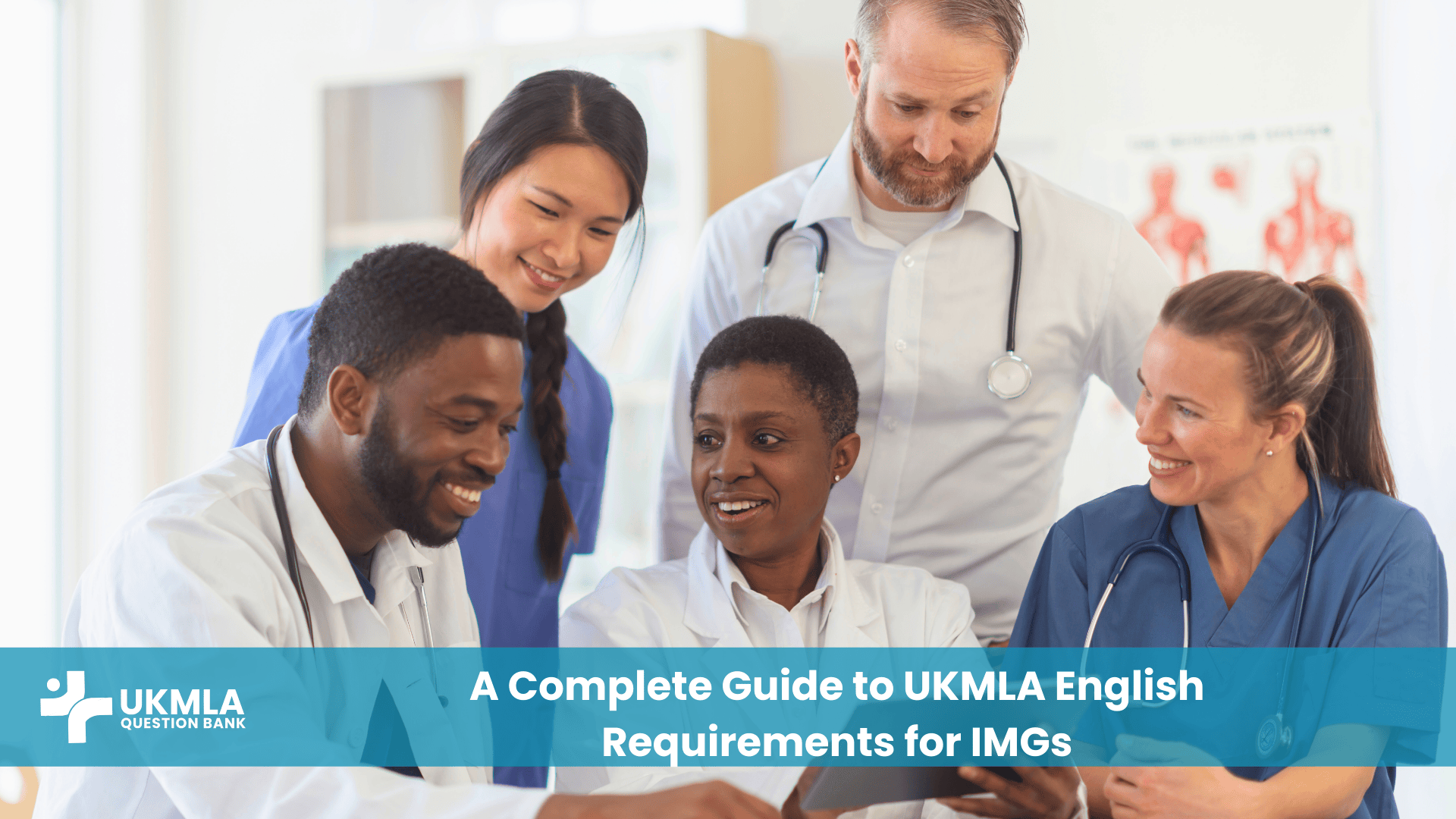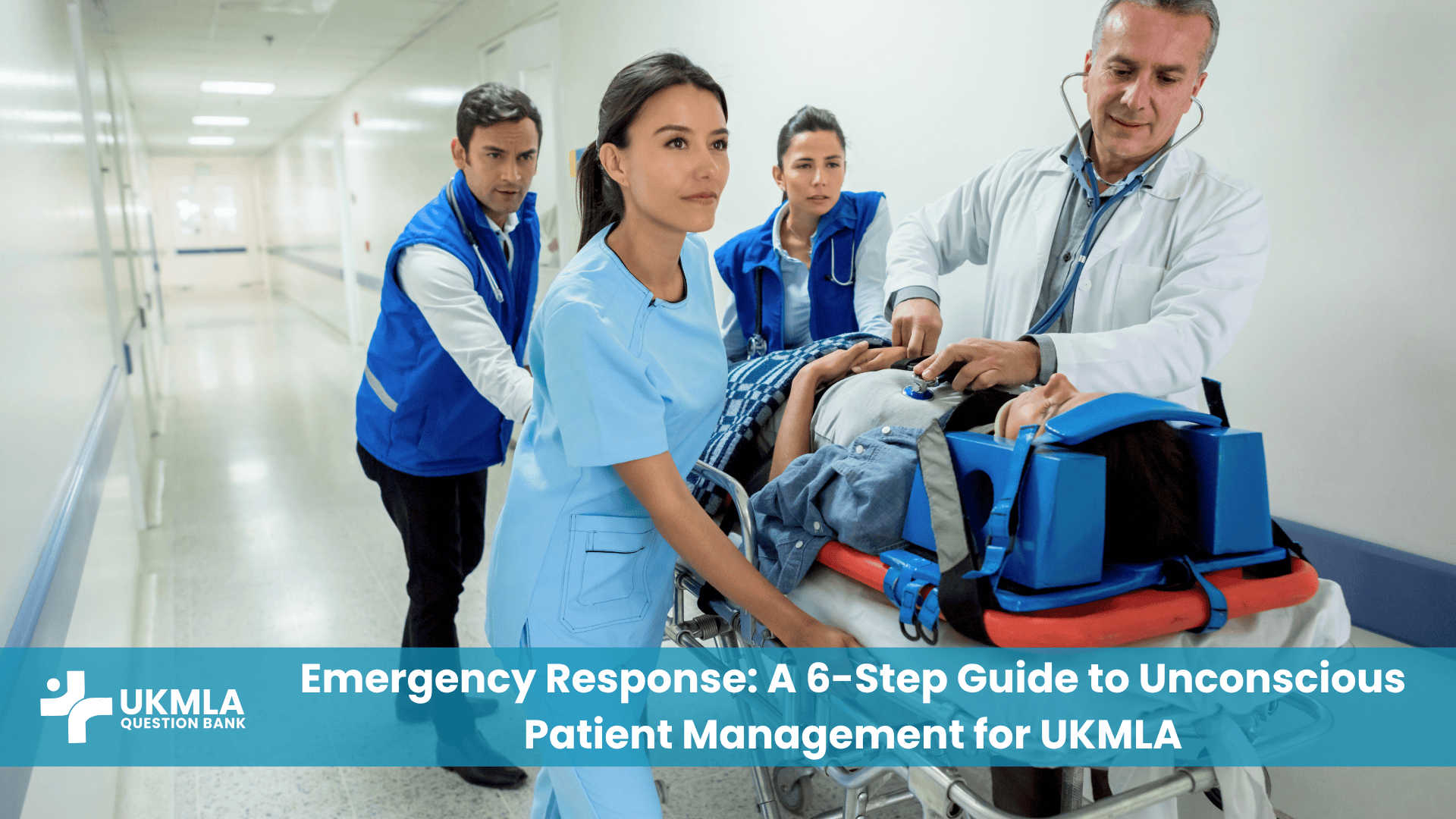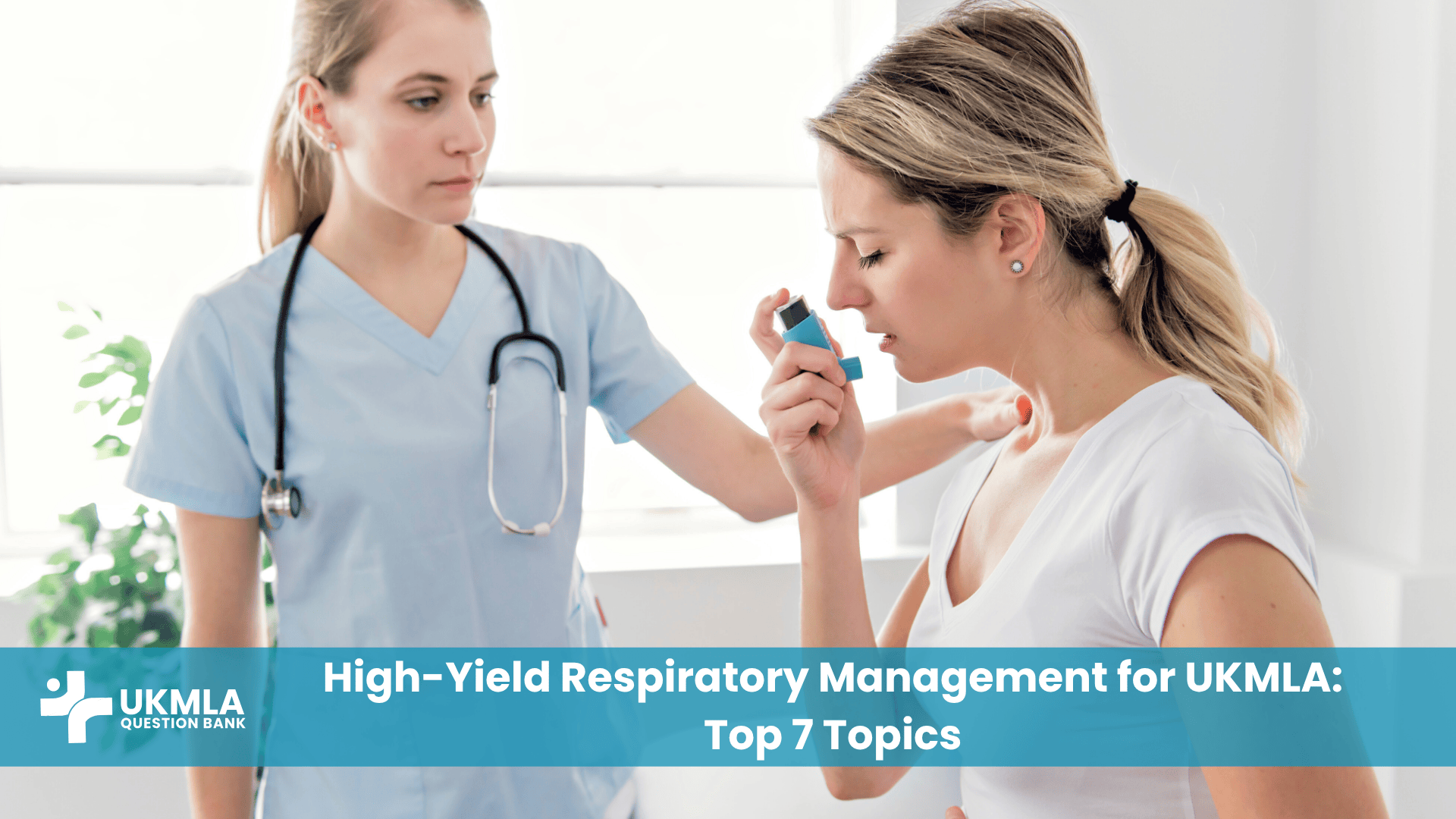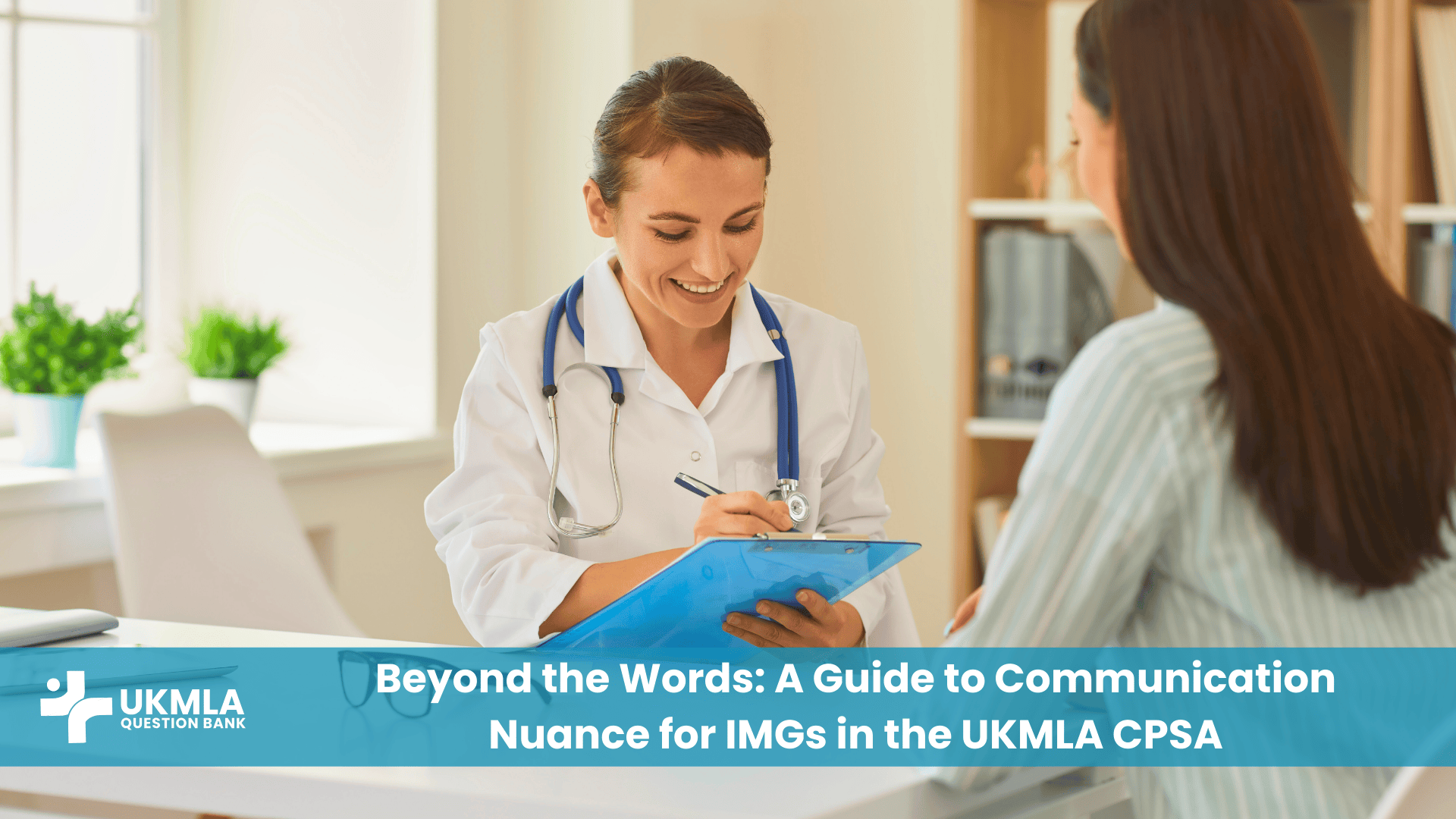Introduction
Mastering ukmla english for imgs is a foundational step in the journey to practicing medicine in the United Kingdom. While the UKMLA rigorously tests your clinical knowledge and skills, the General Medical Council (GMC) places an equally high emphasis on your ability to communicate clearly and effectively in English. This is not just an administrative hurdle; it is a critical component of patient safety, professional integrity, and your ability to integrate into the UK healthcare system.
This guide is designed to be your comprehensive resource for understanding and meeting these language standards. We will break down the official requirements, offering a clear comparison of the IELTS and OET exams. Furthermore, we will go beyond the tests and provide five essential tips for developing the practical, nuanced communication skills required for the CPSA and for your future career as a competent and confident doctor in the NHS.
Table of Contents
ToggleMastering ukmla english for imgs: 5 Essential Tips
Navigating the language requirements involves two key parts: passing a formal test and demonstrating practical communication skills. These five tips cover the entire process.
Tip 1: Understand and Prepare for the Official Tests (IELTS vs. OET)
Before you can be granted GMC registration, you must provide objective evidence of your English language skills. For most IMGs, this means passing either the International English Language Testing System (IELTS) or the Occupational English Test (OET). You must achieve the minimum required score in a single sitting, and your certificate is typically valid for two years. Always check the official GMC guidance on English language evidence for the most up-to-date requirements.
Choosing the right test is a key decision.
IELTS (Academic): This is a general academic English test. The topics can be on anything from environmental science to art history. Many doctors find the writing and speaking sections challenging as they are not medicine-specific.
OET (Medicine): This test is designed specifically for healthcare professionals. All the scenarios in the speaking and writing sub-tests are based on real-world clinical situations (e.g., taking a history, writing a referral letter). Most doctors find the OET more relevant and intuitive.
Table 1: Comparison of IELTS vs. OET for Doctors
| Feature | IELTS (Academic) | OET (Medicine) |
| Content | General academic topics. | Exclusively healthcare and medicine-related. |
| Speaking Test | A formal interview on various topics. | A role-play of two clinical scenarios (e.g., doctor-patient consultation). |
| Writing Test | An essay on a general topic and a data interpretation task. | Writing a medical letter (e.g., referral, discharge). |
| GMC Score (Typical) | Minimum of 7.0 in each of the 4 domains and an overall score of 7.5. | Minimum of Grade B in each of the 4 domains. |
You can find official preparation materials and test dates on the IELTS and OET websites.
Tip 2: Master Patient-Centred Communication and Empathy
The UKMLA CPSA is less about what you say, and more about how you say it. The UK model of care is highly patient-centred. This means you must demonstrate empathy, build rapport, and involve the patient in shared decision-making.
Avoid Medical Jargon: Use simple, clear language. Instead of saying “hypertension,” say “high blood pressure.” Instead of “myocardial infarction,” say “heart attack.”
Check for Understanding: Regularly pause and ask, “Does that make sense?” or “Do you have any questions about what I’ve just said?”
Show Empathy: Use empathetic phrases to acknowledge the patient’s feelings. For example, “I can see this is very distressing for you,” or “That sounds like a very difficult experience.”
Tip 3: Learn Common UK Medical Colloquialisms and Phrases
Every healthcare system has its own slang and colloquialisms, and the NHS is no exception. While these won’t be formally tested, understanding them is crucial for effective teamwork and a smooth transition into practice.
“Bleep”: A pager used to contact doctors urgently. If a nurse asks you to “answer your bleep,” it means you need to call them back.
“On call”: The period when you are the designated doctor to be contacted for urgent issues.
“FY1/F1”: A Foundation Year 1 doctor (your first year after graduating).
“Clerking a patient”: The process of taking a full history and performing an examination for a new patient being admitted to the hospital.
“TTOs”: To Take Out – the patient’s discharge medications.
Tip 4: Develop Active Listening and Paraphrasing Skills
Communication is a two-way street. In the CPSA, examiners are looking for evidence that you are truly listening to the patient, not just waiting for your turn to speak.
Active Listening: This involves giving the patient your full attention, using non-verbal cues like nodding, and not interrupting them.
Paraphrasing and Summarising: A powerful technique is to periodically summarize what the patient has told you in your own words. For example, “So, if I’ve understood correctly, the pain started two days ago, it’s sharp in nature, and nothing you’ve tried has made it better. Is that right?” This confirms your understanding and shows the patient you have been listening carefully.
Tip 5: Practice Speaking with Native English Speakers and Seek Feedback
There is no substitute for practice. Theoretical knowledge of English is not enough; you need fluency and confidence in real-time conversation.
Find a Language Partner: Use language exchange websites to find a native English speaker to practice with. Focus on conversational skills rather than just grammar.
Role-play with Peers: Practice common CPSA scenarios with colleagues. Record yourselves and watch it back to identify areas for improvement.
Seek Professional Feedback: Consider a small number of coaching sessions with a tutor who specializes in the CPSA for IMGs. They can provide expert feedback on your communication style, accent, and use of language. This is a core part of developing the skills needed for CPSA communication stations for IMGs.
Key to Success: “The art of communication is the language of leadership.” – James Humes. For a junior doctor, clear communication is the art of patient safety.
Frequently Asked Questions (FAQ) about UKMLA English Requirements
You need to have a valid English language test certificate before you can apply for GMC registration. Most candidates take the test before or around the same time as their UKMLA exam.
Yes, if your primary medical qualification was taught entirely in English and was obtained from a designated English-speaking country, the GMC may accept it as evidence. You must check their specific and strict criteria on their website.
Your test certificate is valid for two years. You must have a valid certificate when you submit your application for GMC registration.
Many doctors find the writing sub-test challenging. It requires you to write a formal medical letter (e.g., a referral) in a very specific format and within a strict word count. The speaking sub-test, which involves role-playing, can also be challenging if you are not used to that style of assessment.
No, absolutely not. You are not assessed on your accent. You are assessed on your ability to communicate clearly and be understood by the patient and the examiner. Clarity is the key, not the accent.
Unfortunately, you must meet the minimum score in all four components in a single sitting. You will need to retake the entire exam.
The official IELTS and OET websites are the best sources. They provide sample tests, online courses, and detailed information about the exam format.
The cost varies by country and test centre but is typically between £175 and £350.
The AKT vignettes can be long and require good reading comprehension skills. Practicing with a high-quality question bank will help you get used to the style and pace of reading required.
Read UK-based medical resources like the BMJ (British Medical Journal) and the Oxford Handbook of Clinical Medicine. Watch UK-based medical TV shows or educational videos to get used to the language and accents. The entire journey is covered in our step-by-step guide for IMGs.
Conclusion
For an International Medical Graduate, demonstrating English language proficiency is a fundamental requirement that underpins the entire process of gaining your license to practice in the UK. The journey involves clearing the formal hurdle of a standardized test like the IELTS or OET, a process that requires dedicated and specific preparation. The GMC registration process is exacting, and having your language evidence in order is a non-negotiable first step.
However, true proficiency goes beyond test scores. It is about developing the nuanced, empathetic, and patient-centered communication skills that are essential for the UKMLA CPSA and for safe and effective practice within the NHS. By focusing on both the formal requirements and the practical application of your language skills, you will not only meet the standard but will also build the confidence to thrive as a respected and effective junior doctor in the UK.




